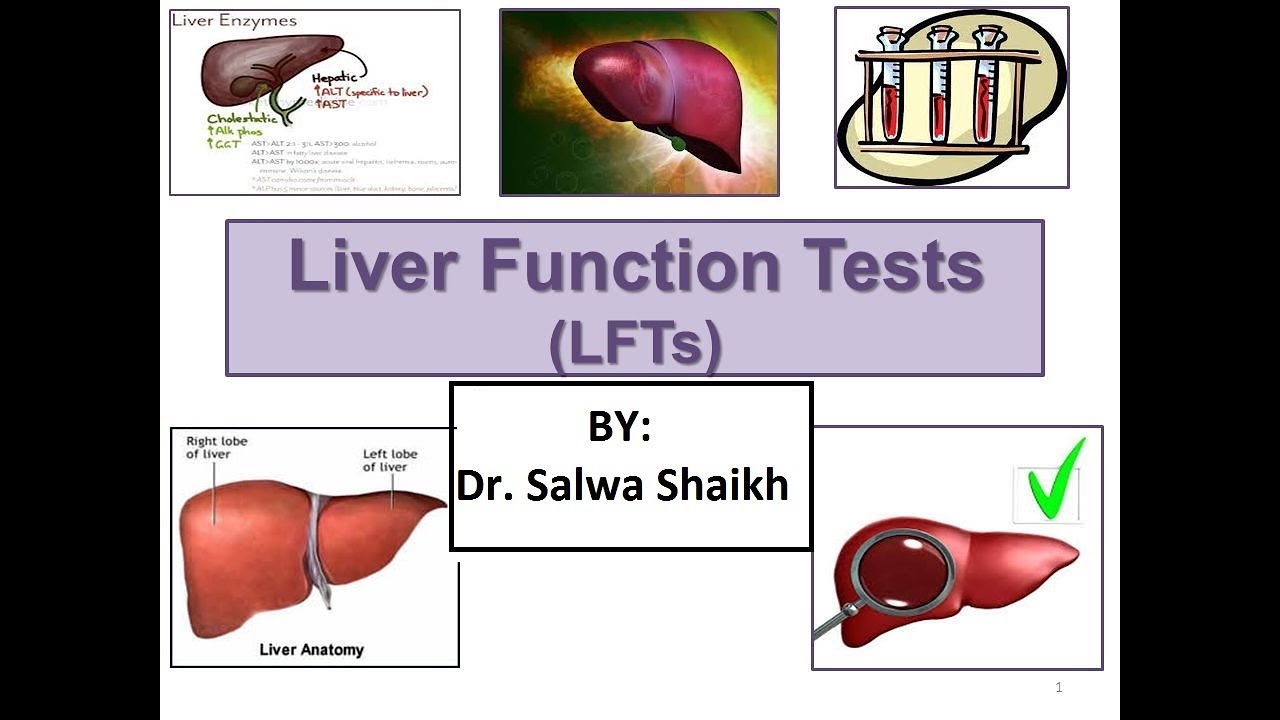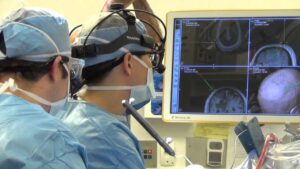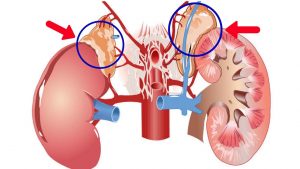In this video I’ll explain you about Liver function tests (LFTs or LFs) are groups of blood tests that give information about the state of a patient’s liver.[1] These tests include prothrombin time (PT/INR), aPTT, albumin, bilirubin (direct and indirect), and others. Liver transaminases (AST or SGOT and ALT or SGPT) are useful biomarkers of liver injury in a patient with some degree of intact liver function.[2][3][4] Most liver diseases cause only mild symptoms initially, but these diseases must be detected early. Hepatic (liver) involvement in some diseases can be of crucial importance. This testing is performed on a patient’s blood sample. Some tests are associated with functionality (e.g., albumin), some with cellular integrity (e.g., transaminase), and some with conditions linked to the biliary tract (gamma-glutamyl transferase and alkaline phosphatase). Several biochemical tests are useful in the evaluation and management of patients with hepatic dysfunction. These tests can be used to detect the presence of liver disease, distinguish among different types of liver disorders, gauge the extent of known liver damage, and follow the response to treatment. Some or all of these measurements are also carried out (usually about twice a year for routine cases) on those individuals taking certain medications, such as anticonvulsants, to ensure the medications are not damaging the person’s liver. LIKE SHARE COMMENT DOWN BELOW Don;t Forget to SUBSCRIBE

Liver Function Test (LFT) explained by Dr. Salwa Shaikh
- Post author:
- Post published:June 6, 2021
- Post category:Uncategorized
- Post comments:0 Comments
You Might Also Like

Anabolic Steroids – History, Definition, Use & Abuse Video – 14

THE ONLY 2 MAJOR WAYS TO INCREASE YOUR METABOLISM (The Truth)

Gain Weight FAST : Natural Protein Shake Without Protein Powder,Easy Weight Gain Protein Drink

Orthopedic Physiotherapy Video – 4

Tricep Rope Extension | Tricep Exercise #3 | Sangram Chougule Fitness

Elements of the Human Body

FUE Hair Transplant – Final Result Timeline – Hair loss treatment / baldness for Men 2016

Fitness & Nutrition : How to Properly Heal a Hamstring Injury

Addictive Substances Nutrition Video – 2

Components OF Skill Related Fitness

Early Signs of Osteoporosis

Good morning Exercise

Human Body, Body Building Muscle Building Anatomy Physiology Video – 27

7 MIN STRETCHING EXERCISES AFTER WORKOUT ( New) | FULL BODY COOL DOWN FOR RELAXATION & FLEXIBILITY

Foods Nutrition Video – 2

Law 6: Optimize with a Pre-Workout | 10 Laws Of Muscle-Building

Low Carb Myths – Stop Obsessing Over Insulin

Upright Row-4

Sugar Free, Low Sugar Video – 18

Insulin vs Glucagon

The Right Way To Side Plank | Side Plank for Beginners | Fitness Video | How to Plank? I OZiva

What is Fish Oil? Omega-3 Benefits & Side Effects Review by Guru Mann

The Sublingual Route

21 Metabolic Moves to Get You Shredded

9 Weeks Pregnant – Tips for a Healthy Pregnancy Diet | Nourish with Melanie #10

Adductor Machine-5

Rowing Video – 3

The 8 Best Supersets (YOU’RE NOT DOING!!)

Why HYPERTENSION Is No Joke!

Meningitis – What You Need To Know

What makes muscles grow? – Jeffrey Siegel

Military Psychiatry Video – 4

Children First Aid: Vomiting and Diarrhoea

Neuro Surgery Video – 5

Aroma Oils Video – 2

14 most common symptoms of anemia

Human Digestive system explained

David Laid 6 Year Natural Transformation 13-19

BCAA vs WHEY ISOLATE : Supplement Science on RXMuscle.com

2 Main Causes Of Kidney Disease You Must Know

How To: Laying Dumbbell Tricep Extension

